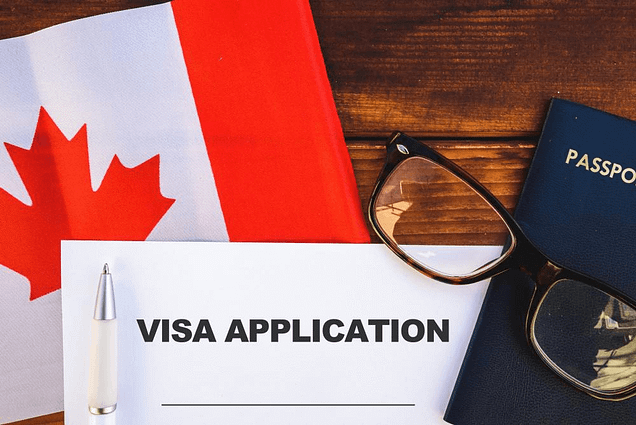Study Permit in Canada: How to apply – Canada

Study Permit in Canada: How to apply - Canada
Introduction
Embarking on an instructive journey in Canada is an exciting and open door for some students worldwide. The Canadian Study Permit fills in as a passage for this experience, offering an opportunity to encounter different societies and first-rate schooling. This guide demystifies obtaining a Study Permit, ensuring aspiring international students comprehend the means and prerequisites. From eligibility measures to application methods, we cover fundamental angles to assist you with navigating this significant period of your scholarly journey.
What is a Study Permit in Canada?
The Public Authority of Canada issues a document known as a Study Permit, which enables individuals who are not citizens of Canada to pursue their education at designated learning institutions (DLIs) located in Canada. It is a brief occupant visa explicitly for individuals seeking scholar, professional, or expert training in the country. To study in Canada as an international student, you, by and large, need a permit except if your program of study is a half year or less, in which case you might be qualified to study without one. In any case, checking the particular prerequisites in light of your ethnicity and intended course of study is fundamental.
Central Issues About the Study Permit
Understanding the essential parts of the Permit is vital for a fruitful application. This part outlines the crucial components you want to know, from the application process to the permit’s span and conditions. We’ll examine eligibility prerequisites, the capacity to work while studying, and potential open doors after graduation, providing an unmistakable outline of what’s in store and how to plan for your study insight in Canada.
1. Application Process
To apply for a study permit, you, as a rule, need to tie down admission to a DLI in Canada initially. Whenever you have been acknowledged, you can apply for the study permit through the Migration, Refugees, and Citizenship Canada (IRCC) site or at a Canadian government office, high commission, or department in your nation of origin.
2. Eligibility
To be qualified for a study permit, you should give evidence of adequate assets to cover educational expenses and living costs and bring transportation back. You should likewise fulfil particular well-being and security necessities and have no criminal record.
3. Term
The permit is generally given for the length of the study program, including an extra period to consider travel. You will get a study permit if your program lasts longer than a half year. If it’s a half year or less, you could get a visitor visa or an Electronic Travel Approval (estimated time of arrival) instead.
4. Working While at the Same Time Studying
With a legitimate permit, international students are generally permitted to work on or off-grounds while studying, up to a certain number of hours every week. This allows students to gain practical experience and supplement their finances.
5. Post-Graduation Work Permit (PGWP)
After completing a qualifying program at a Canadian DLI, students might be qualified to apply for a PGWP, which permits them to work in Canada for a while after graduation. This permit is an incredible chance for international students to gain Canadian work insight and possibly fit the bill for permanent residency.
Study Permit Visa in Canada
A study permit is a sort of visa that permits foreign nationals to study in Canada at designated learning institutions (DLIs). If you are planning to study in Canada, here are a few significant points to realize about the study permit:

1. Eligibility
To be qualified for a study permit, you regularly need the following:
-
An acceptance letter from a DLI in Canada.
-
Evidence of adequate assets to cover educational expenses, living costs, and bring transportation back.
- A perfect criminal record.
-
Great well-being (you might have to go through a clinical examination).
-
The intention is to leave Canada toward the finish of your approved stay.
2. Applying for a Study Permit
You can apply for a permit online or through your country’s visa application centre (VAC). The application process might include submitting required documents, paying fees, and biometrics (if appropriate).
3. Processing Time
The processing time for study permit applications fluctuates depending on your nation of home. It’s fundamental to apply well ahead of time to consider processing and possible deferrals.
4. Study Permit Conditions
Whenever endorsed, your study permit will accompany certain circumstances, for example, the degree of study, the institution you are permitted to join, and whether you can work while studying.
5. Working While at the same time Studying
Study permit holders are often qualified to work on or off grounds while studying. You might have to apply for a different work permit for off-ground work.
6. Extending Your Study Permit
If your program is longer than the initial study permit’s legitimacy, you should apply for a study permit expansion before it lapses.
7. Impermanent Occupant Visa (TRV)
Depending on your nation of citizenship, you may likewise have to apply for an Impermanent Occupant Visa (visitor visa) to enter Canada. This visa is regularly given as a sticker on your passport.
Apply for a Study Permit Visa in Canada
Applying for a Study Permit Visa is a critical stage towards your instructive objectives in Canada. This part separates the process into sensible advances, guiding you from Acceptance at a designated learning institution to arriving in Canada. We detail the documents required, the application methodology, and what’s in store at each stage. This direction means working on the process, making it not so daunting but rather more open for aspiring students.

1. Get Acceptance from a Designated Learning Institution (DLI)
Before applying for a Study Permit, you should be acknowledged by a perceived Canadian instructive institution. Guarantee that the institution you pick is on the list of designated learning institutions, as only students studying at DLIs are qualified for a study permit.
2. Check Eligibility
Survey the eligibility prerequisites to ensure you meet all the standards to apply for a permit in Canada. Factors that might be considered include:
- Financial adequacy.
- Ties to your nation of origin.
- Your intention to leave Canada after completing your examinations.
3. Accumulate the Necessary Documents
Set up every one of the essential documents for your application. The specific rundown of required documents might differ depending on your nation of home and the particular conditions of your application. Regularly required documents include:
- Letter of Acceptance from the DLI
- Legitimate passport
- Passport-sized photographs
- Evidence of financial support
- Migration Clinical Examination (IME) results (if pertinent)
- Mission statement or letter of clarification
- Any extra documents mentioned by your country’s Canadian department or visa office.
4. Apply Online or through a Visa Application Center (VAC)
Most candidates can apply for a Study Permit online through the Movement, Refugees, and Citizenship Canada (IRCC) site. Then again, a few nations have Visa Application Centers (VACs) that handle visa applications for the benefit of the Canadian government. Check with your country’s Canadian office or consulate for explicit instructions on the best way to apply.
5. Pay the Application Fee
There is usually a non-refundable fee related to the Study Permit application. Check the ongoing fee on the authority IRCC site or the site of the Canadian department in your country.
6. Biometrics and Interview (whenever required)
Sometimes, you might have to give biometric information (fingerprints and photographs) at a neighbourhood VAC. Moreover, you may be approached for an interview at the Canadian department or international haven.
7. Hang tight for Processing
Studying permit Processing times can shift depending on your nation of residence and the volume of applications. It’s advisable to apply well ahead of your intended study start date.
8. Get the Choice
When your application is processed, you will get a choice regarding your Study Permit. Whenever supported, you will get a Port of Section (POE) Letter of Introduction, which permits you to travel to Canada.
9. Travel to Canada and Present Documents at the Port of Passage
When you arrive in Canada, you should introduce your passport, letter of introduction, and other essential documents to the Canada Line Administrations Organization (CBSA) official at the port of passage. They will give you a Study Permit, allowing you to study in Canada.
Note: The process might have explicit varieties or extra prerequisites depending on your home nation, the instructive program you are pursuing, and your conditions. Continuously check the authority IRCC site or talk with your country’s Canadian department or government office for the most up-to-date and exact information.
Conclusion
Stepping into the domain of international schooling in Canada opens ways to endless open doors and encounters. With this aid, you’re better prepared to explore the application process for a Canadian Study Permit. Remember that studying in Canada involves cautious planning and adherence to the outlined advances. By staying informed and ready, you’ll be en route to an enriching educational experience in one of the world’s most welcoming nations.




